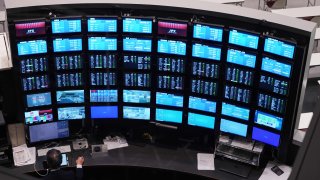
- Citi recently added its asset allocation to Japan and China, said Ken Peng of Citi Private Bank. "These two are our top picks for the region," he said.
- Global investors are getting more interested in Japanese stocks because of improvements in corporate governance, and the country remains a critical part of the global supply chain for technology, Peng added.
Asian markets are well placed compared to the U.S., and Japan and China are the top picks, according to an investment strategist from Citi Private Bank.
Inflation is milder compared to the U.S. and central bankers in Asia are not as nervous as the Federal Reserve, said Ken Peng, head of the bank's Asia Investment Strategy.
Get a weekly recap of the latest San Francisco Bay Area housing news. Sign up for NBC Bay Area’s Housing Deconstructed newsletter.
Citi recently added its asset allocation to Japan and China, Peng told CNBC's "Street Signs Asia" on Friday.
"These two are our top picks for the region," he said.
Japan is the "cheapest among developed markets" and is below its own historical averages, said Peng.
Money Report
Earnings growth in Japan is "fairly robust," and price-to-earnings ratios are coming down because prices have slipped and earnings have risen, he said.
It is also a "mild positive" that the yen could weaken as the yield gap between the U.S. and Japan widens, he said. A weaker currency is good for exports, as it makes products sold overseas cheaper and therefore more competitive.
Global investors are getting more interested in Japanese stocks because of improvements in corporate governance, and the country remains a critical part of the global supply chain for technology, Peng added.
"Because of this collection of interesting points, and at a time when the U.S. is becoming shakier, you're likely to see more inflows for Japan — and that's why we're relatively more positive there," he said.
Meanwhile, China is likely to see easing for both monetary and fiscal policy, Peng said.
The Federal Reserve has signaled that it's ready to raise interest rates and that the era of easy money is coming to an end. On the other hand, China has in recent weeks cut interest rates in a bid to boost its economy.
"On the China side, there is potential for policies to expand enough to narrow that credit spread," Peng said.
As interest rates in China fall, bond prices tend to rise. And while interest rates in the U.S. increase, bond prices will likely fall, offering opportunities for China to outperform.
"What we expect is for China to become a kind of [an] alpha opportunity this year in the high yield fixed income space," he added.






